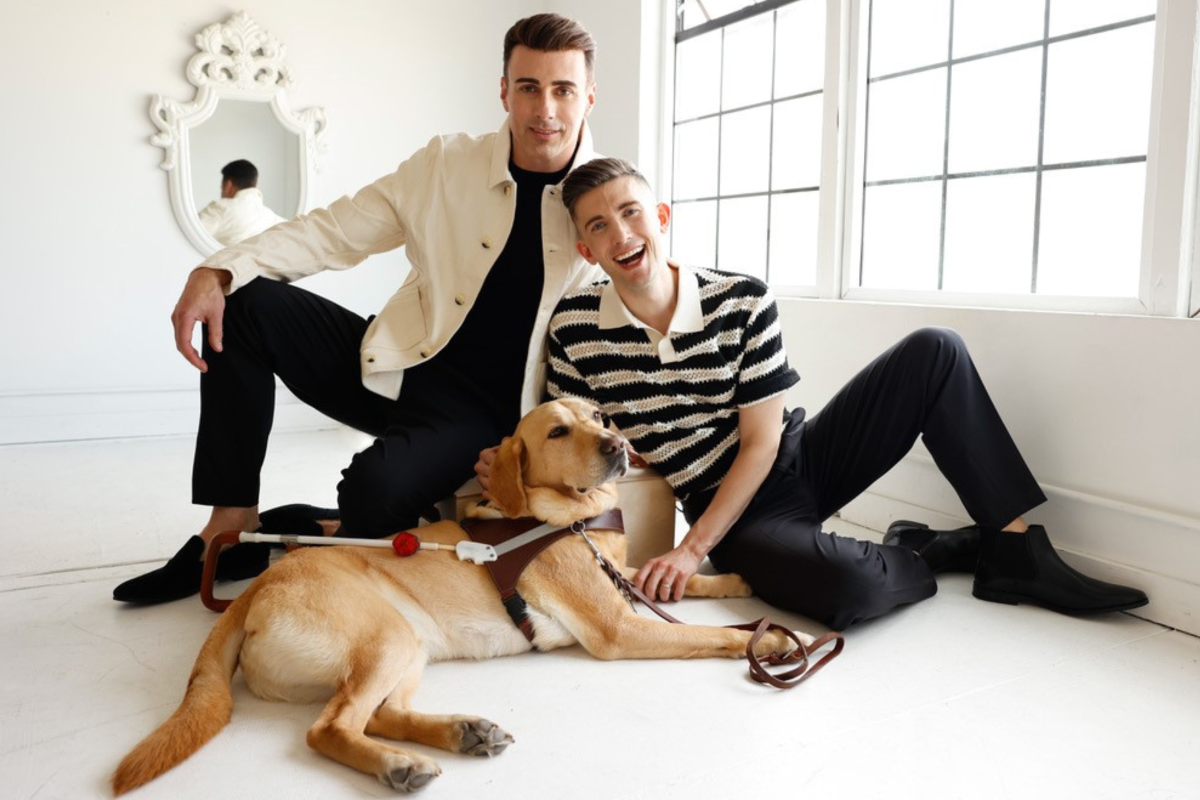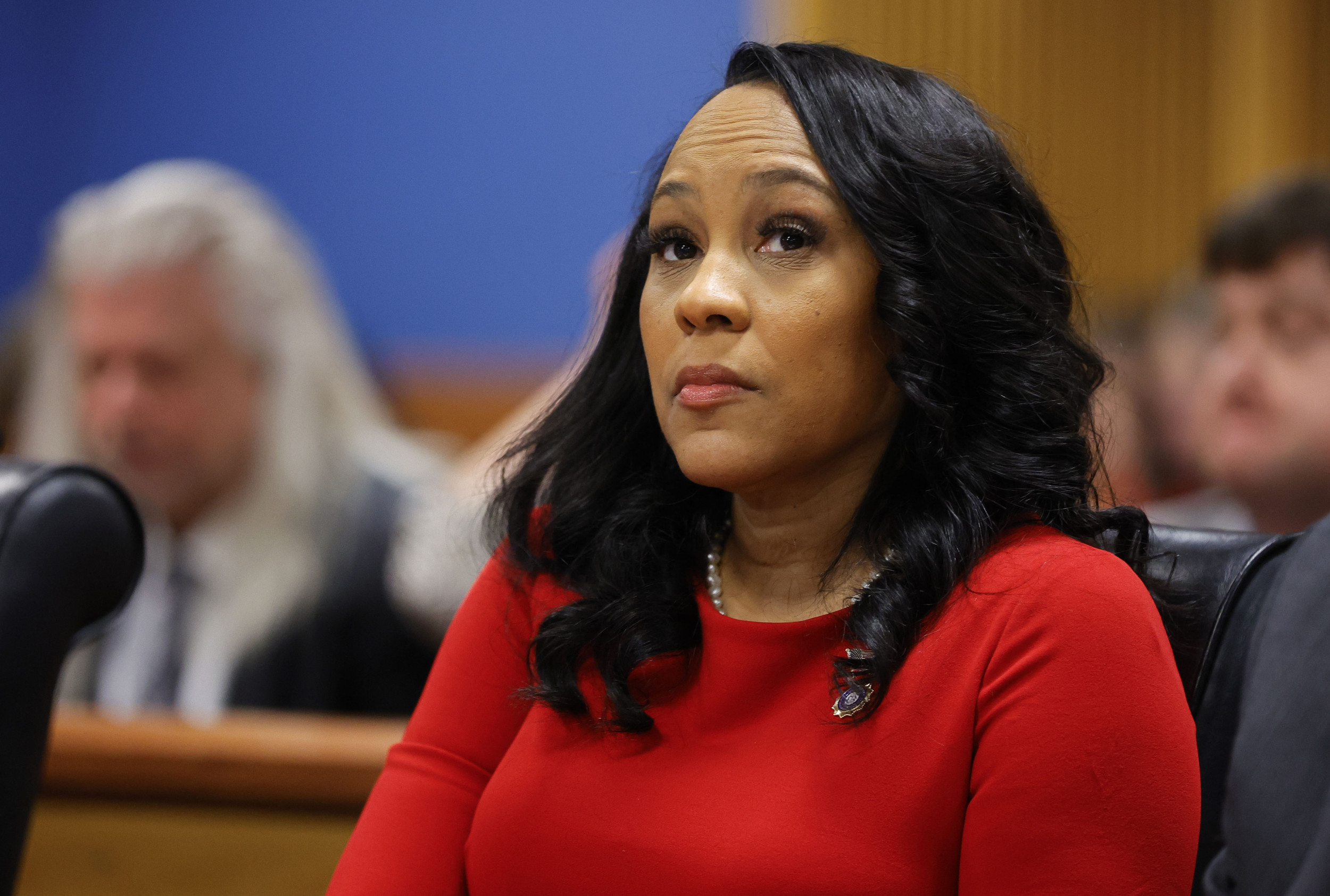The ability to find humor in difficult situations is not only a great skill but also clinically proven to reduce stress and increase serotonin.
In the words of the Dalai Lama, "Choose to be optimistic; it feels better."—and that's exactly what author and illustrator Paul Castle chose to do when he was diagnosed with Retinitis Pigmentosa, a rare genetic eye disease.
"I was born with the condition," Castle told Newsweek, "but I didn't know until I was learning to drive at the age of 16 when I had a very near collision on a country road in Canada where I grew up, and my family took me to an ophthalmologist for some special tests.
"Soon after, I heard the words 'Retinitis Pigmentosa' for the first time in my life. It took several years for this information to be fully processed because, in the beginning, I was more concerned about my parents' sadness and wanted to remain positive for their sake."
It wasn't until college, where Castle attended his first group meeting for people in the blind community, that it really hit him.

"I broke down crying. It was a healing moment for me," he said. "Despite my vision loss, my passion has always been in the visual arts, and I've made a living as an artist since my college years. I majored in English Literature in San Jose, California. I have lost over 90 percent of my vision, but I still retain a pinhole of sight in the center. It's like looking through a straw.
Castle has been a professional artist for over a decade, selling his work to buyers throughout the world, but as his sight deteriorated, he had to stop. Around the same time as this devastating decision, Castle was given a tablet.
"I was shocked to realize I could actually draw on it. I used a screen cover that gave my tablet the texture of real paper. By turning the brightness all the way up and utilizing the zoom features, I re-discovered my love of illustration and quickly started selling them as framed prints, greeting cards, stickers, and eventually books."
As well as his illustrations, Castle has also written and illustrated a children's book called The Pengrooms, inspired by his wedding to his husband, Matthew, in 2019. He's currently working on the second edition.
"At this point in my vision loss journey, I feel motivated to be productive during these final years of sight. It also makes me focus on the present and what I can accomplish today. The rate of my vision loss is unpredictable, just as advances in science and medicine are also impossible to predict. Going blind has really taught me to feel gratitude for the vision I do have, not bitterness for the vision I've lost."
Castle and his husband Matthew, a classical violinist, post videos to their Instagram account @matthewandpaul, detailing what life is really like when you're blind with a mix of humor, and also raw honesty.
In one video captioned, "What it's REALLY like to be blind:" with over 777,000 views, Paul can be seen making light of some of the challenges of being blind including tripping over his service dog, a yellow Labrador called Mr. Maple, and a "blind hack" to use when out with friends.
"When it's time to cheers," he says, "be the first to get your glass out there in the middle," suggesting that everyone else will then have to come to you—which in this case doesn't happen, and Castle responds, "Works every time!"
Research has shown that finding something funny has the ability to cause a ripple effect of biological reactions in the brain and body.
"When we laugh, it's a physical expression of humor that triggers abdominal contractions, which stimulates circulation and the release of "feel good" chemicals as the body lets go of muscle tension," writes Heidi Hanna, Ph.D., for The American Institute of Stress.
Hanna points out that there is also a "significant amount of research showing that experiencing humor also boosts the production of immune cells, reduces pain and chronic fatigue, and may be able to improve mental and emotional health by shifting negativity bias—our natural, self-protective tendency to see the threats in our environment—towards the positive."
Castle would agree and has been using humor to deal with difficult situations for as long as he can remember.
"This was true for me even prior to my diagnosis with Retinitis Pigmentosa," he said, "I find comfort in lightness and levity. It's a welcome break from the weight of a bleak diagnosis. It's important, however, to have a balance of humor and reality. We try to show both sides in our videos on social media. While laughter is a big part of our lives, we routinely share the sadness and challenges, too. I believe we need to feel all the feelings to have a full and grounded experience."
Not only is humor an important coping mechanism, but it's also essential in maintaining relationships.
"My husband, Matthew, is a natural-born prankster and he does not hold back with me just because I'm blind," Castle said. "I remember very early in our relationship when Matthew pranked me by handing me a broom instead of my white cane as I exited the apartment. I made it 10 feet out the front door before I realized what I was holding and just burst out laughing.
"It was one of the first times I felt my disability actually added something light-hearted and positive to our relationship and was the beginning of a very healing experience for me," he told Newsweek.
Despite his ability to find humor, Castle points out that there is still a huge amount of stigma surrounding all disabilities.
"Without a doubt, there is a stigma attached to having a disability, just as there is a stigma attached to all minority groups in society," he said. "Having said that, my personal experience has been overwhelmingly positive.
"Helpful interactions with strangers, discovering accessibility features in public spaces, and finding support both online and in person are just a few examples of ways in which I feel very included and accepted. I think most people are quite surprised to learn just how capable people in the blind community truly are!"
Newsweek's "What Should I Do?" offers expert advice to readers. If you have a personal dilemma, let us know via life@newsweek.com. We can ask experts for advice on relationships, family, friends, money and work and your story could be featured on WSID at Newsweek.
Uncommon Knowledge
Newsweek is committed to challenging conventional wisdom and finding connections in the search for common ground.
Newsweek is committed to challenging conventional wisdom and finding connections in the search for common ground.
About the writer
Leonie Helm is a Newsweek Life Reporter and is based in London, UK. Her focus is reporting on all things ... Read more
To read how Newsweek uses AI as a newsroom tool, Click here.






